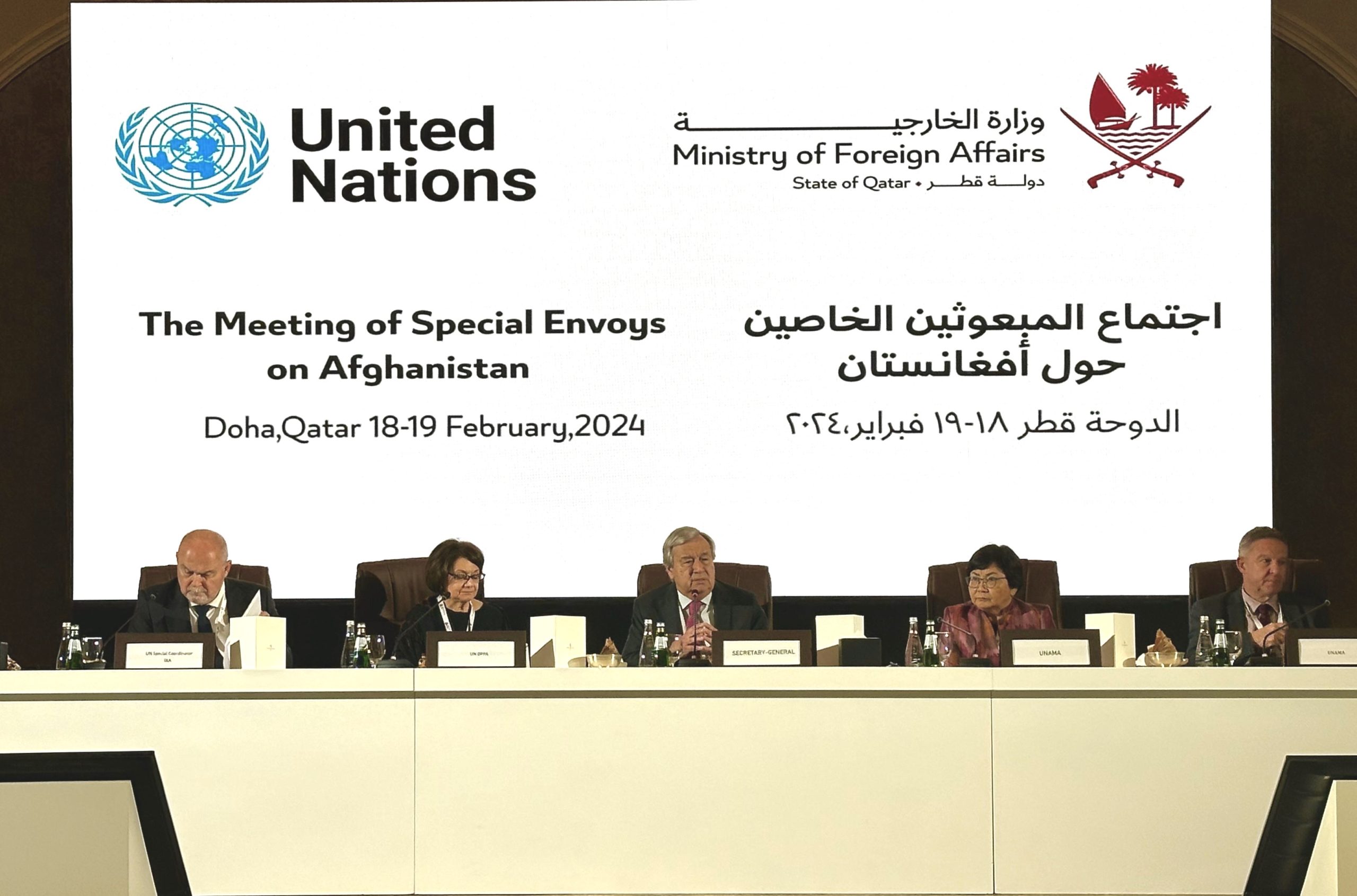Qatar’s proactive approach and the UN’s concerted efforts signal a commitment to finding a peaceful, inclusive, and prosperous path for Afghanistan, despite the hurdles posed by the current political landscape.
Under the auspices of the United Nations, Qatar hosted on Sunday the 2nd meeting of Special Envoys on Afghanistan with the participation of General of the United Nations Antonio Guterres.
In a speech during the opening session of the meeting, Minister of State at the Ministry of Foreign Affairs Mohammed bin Abdulaziz bin Saleh Al Khulaifi reiterated Qatar’s commitment to support the people of Afghanistan.
He also highlighted Doha’s sincere aspiration to advance the partnership in Afghanistan and expressed his country’s pride in its partnership with the UN to support the people of Afghanistan.
He affirmed that Qatar welcomed the recommendations of the UN report and believed that the recommendations were constructive, comprehensive, and could provide a consistent approach toward Afghanistan.
The Taliban was absent from the meeting in response to the group’s demands not being met, including recognition as Afghanistan’s sole official representative and assurances against criticism of their governance since reclaiming power in August 2021.
This stance was met with disappointment from various groups, including Jan Egeland, Secretary-General of the Norwegian Refugee Council, who posted on X: “Disappointing that the Taliban declined to attend the special envoy meeting for Afghanistan in Doha this week. We urge all sides to do more to hammer out deals that can benefit the long suffering Afghan people. It’s vital to keep voices & rights of Afghan women front & centre.”
The conference seeks to provide a platform for voices often suppressed under the Taliban regime, focusing on the critical human rights situation, particularly concerning women rights and civic groups.
A recent report by UN Special Coordinator Feridun Sinirlioglu emphasised the need for Afghanistan’s reintegration into the global economic and political landscape, contingent on the Taliban adhering to international standards, a condition firmly rejected by the militants.
The UN Working Group on Women, Peace and Security has labelled the meeting a vital opportunity to assert that Afghan women’s rights were non-negotiable.
The Taliban’s harsh policies, including the exclusion of women from education and employment, led to international condemnation and a withdrawal of support from nations and aid organisations, exacerbating Afghanistan’s economic woes.
Participants at the meeting include representatives from the US, China, Pakistan, and the European Union.
Qatar’s role extends beyond hosting dialogues, as evidenced by its mediation efforts worldwide and specific initiatives in Afghanistan focusing on humanitarian, developmental, and diplomatic support.
Notably, Qatar has engaged with the Afghan caretaker government on critical issues such as health and education, hosting roundtable discussions and cooperating with international organisations to address the needs of the Afghan populace.







